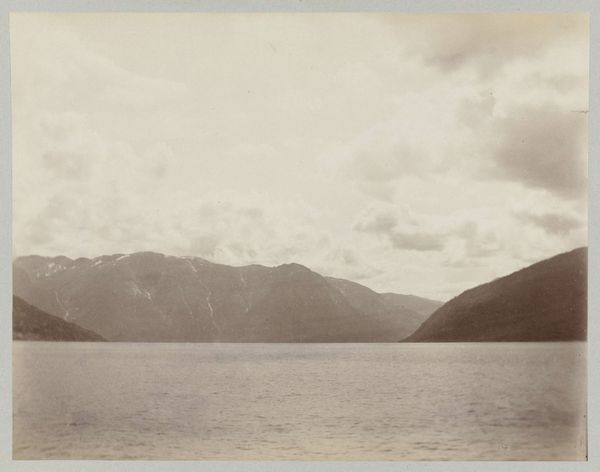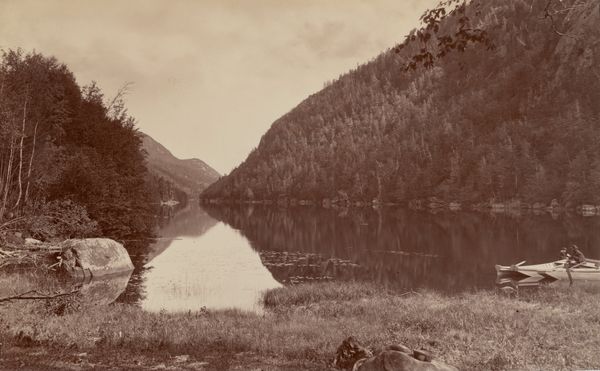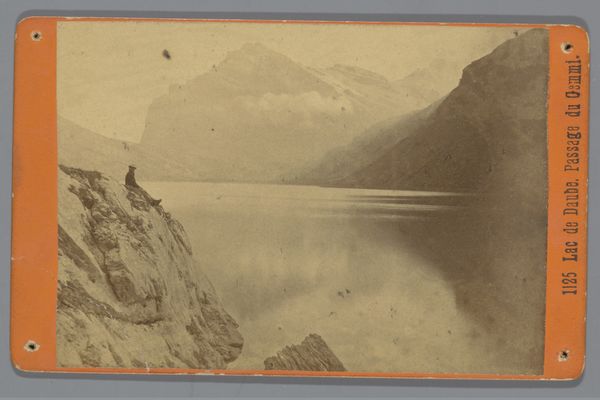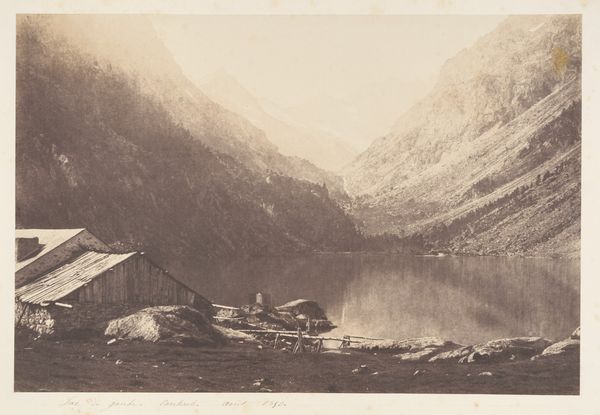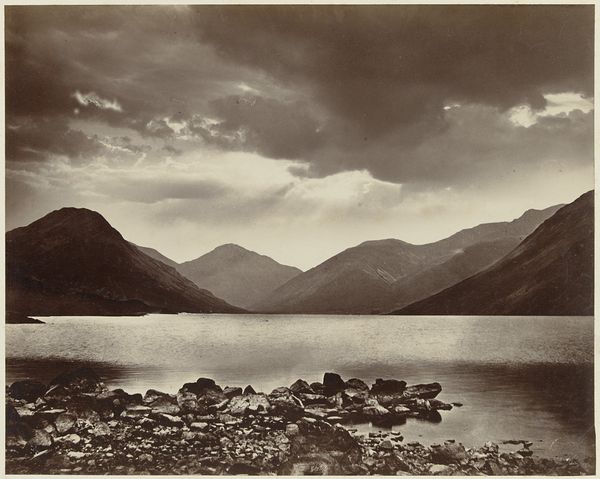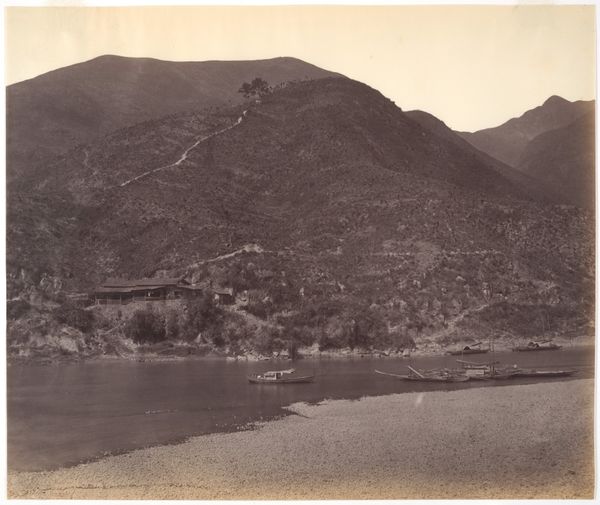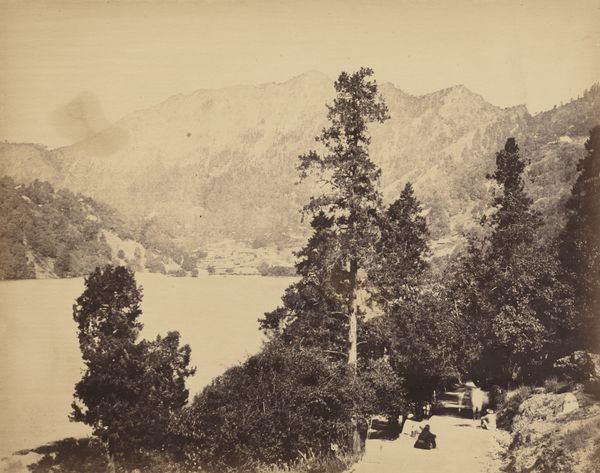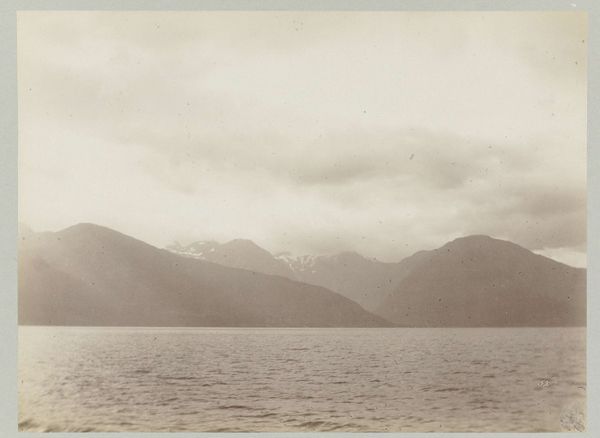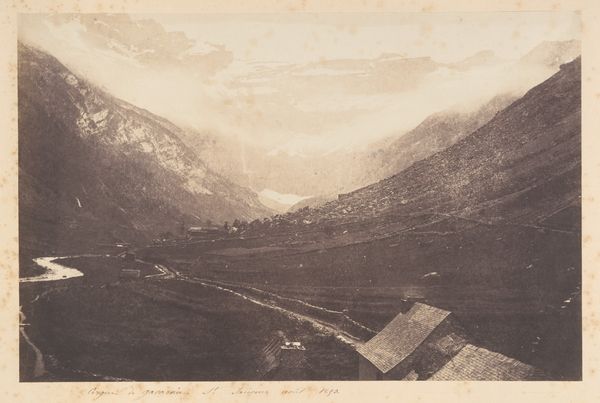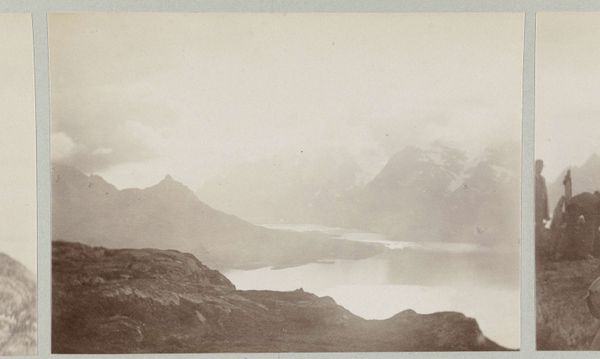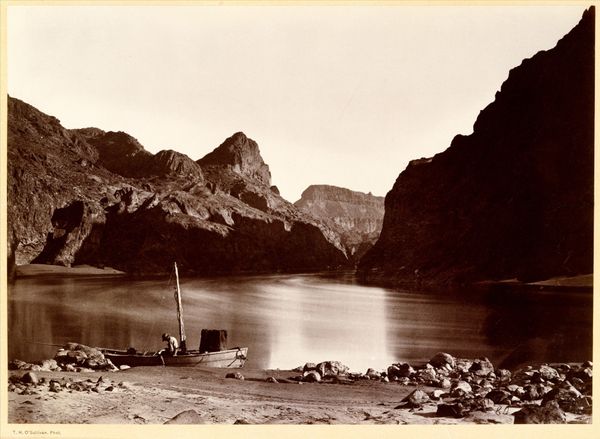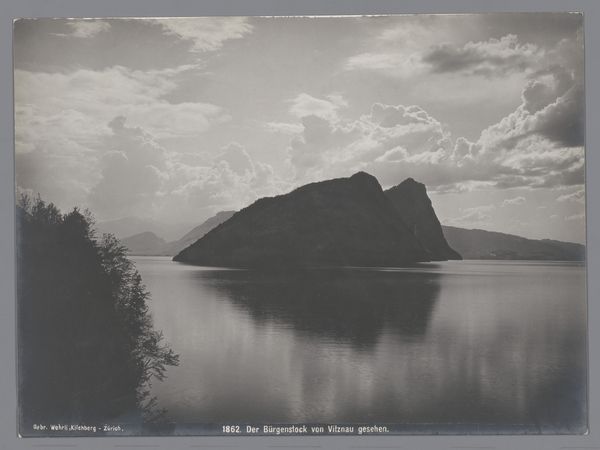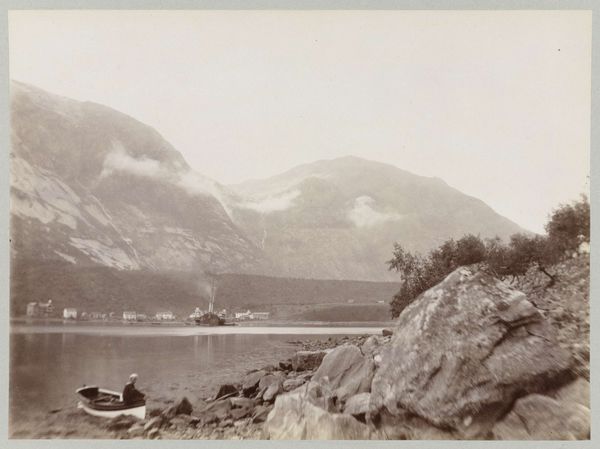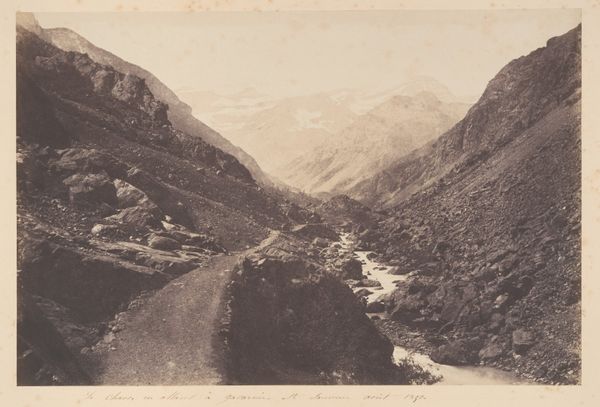
albumen-print, photography, albumen-print
#
albumen-print
#
landscape
#
nature
#
photography
#
romanticism
#
hudson-river-school
#
fog
#
united-states
#
albumen-print
Dimensions: 16 5/8 x 38 5/8 in. (42.23 x 98.11 cm) (image)19 x 40 in. (48.26 x 101.6 cm) (mount)
Copyright: Public Domain
Curator: Good morning, I'm so glad you're joining me to view this compelling work by William Henry Jackson, "Upper Twin Lake", likely captured in the 19th century. What are your first thoughts? Editor: It's deeply atmospheric, isn't it? A sepia wash of tranquility. The peaks fade softly into a hazy sky. There's something almost mournful in the stillness. Curator: Jackson masterfully uses the albumen print to give us that precise detail, even in this subdued light. Knowing the context, that the American West was being 'discovered' and romanticized during this period, makes the stillness feel loaded. Editor: Exactly. The American West, romanticized, and yet, simultaneously subjected to colonial gazes and erasure. I am curious about this idealized stillness of this "untouched nature". Curator: It speaks to that conflicting narrative so pervasive in that era, right? Jackson worked for the U.S. Geological Survey. There's a duality - celebrating nature while also charting it for resource extraction. The subdued tone kind of conceals that. Editor: It really does. What the photo hides becomes as important as what it reveals. Also, think about Indigenous perspectives absent here; the forced removal was so destructive and violent in that era. It all kind of is conveniently smoothed over into this vision of pristine beauty, it lacks people or any signs of them! Curator: I think there is something about his embrace of romanticism and the Hudson River School aesthetic at play here. Even though photography feels inherently linked to the real, there is some definite dramatization present! Editor: Absolutely. Even that mirroring effect in the water creates this ethereal, almost dreamlike impression. You know, there's a lesson there. It challenges us to look critically at whose story we're seeing and whose story we're not. It can make us reflect on landscape photography and power. Curator: It absolutely can, even if it's from a distance of a century or so. Looking closer challenges how much our contemporary relationship with landscape and the environment may still need decolonizing! Thank you. Editor: Thank you for these powerful insights, I'm so much richer for it.
Comments
No comments
Be the first to comment and join the conversation on the ultimate creative platform.
